White Portland Cement is suitable for applications requiring earlier compressive strength and faster setting time.
White Portland Cement
- CEM I 52.2 N & R
- CEM I| 32.5 R
- CEM II 42.5 N & R
- CEM || 52.5 N
Applications Include:
White Portland Cement CEM I 52.5 N
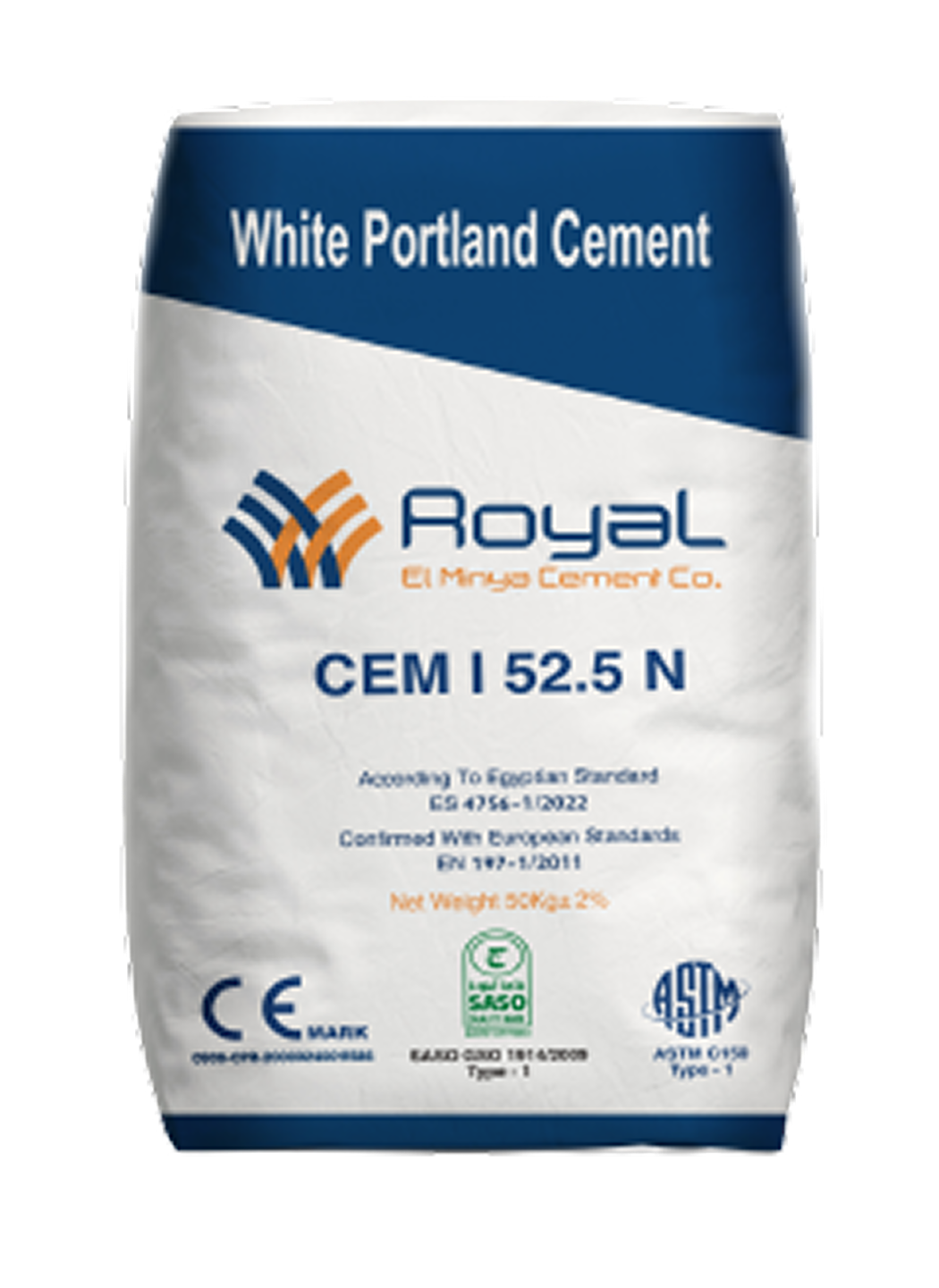
- Dry construction mixtures
- Interlocking and patio pavers
- Precast concrete elements
- White and colored architectural concrete
- Garden landscaping and decorative features
- Chemical building products
White Portland Cement CEM I 52.5 R
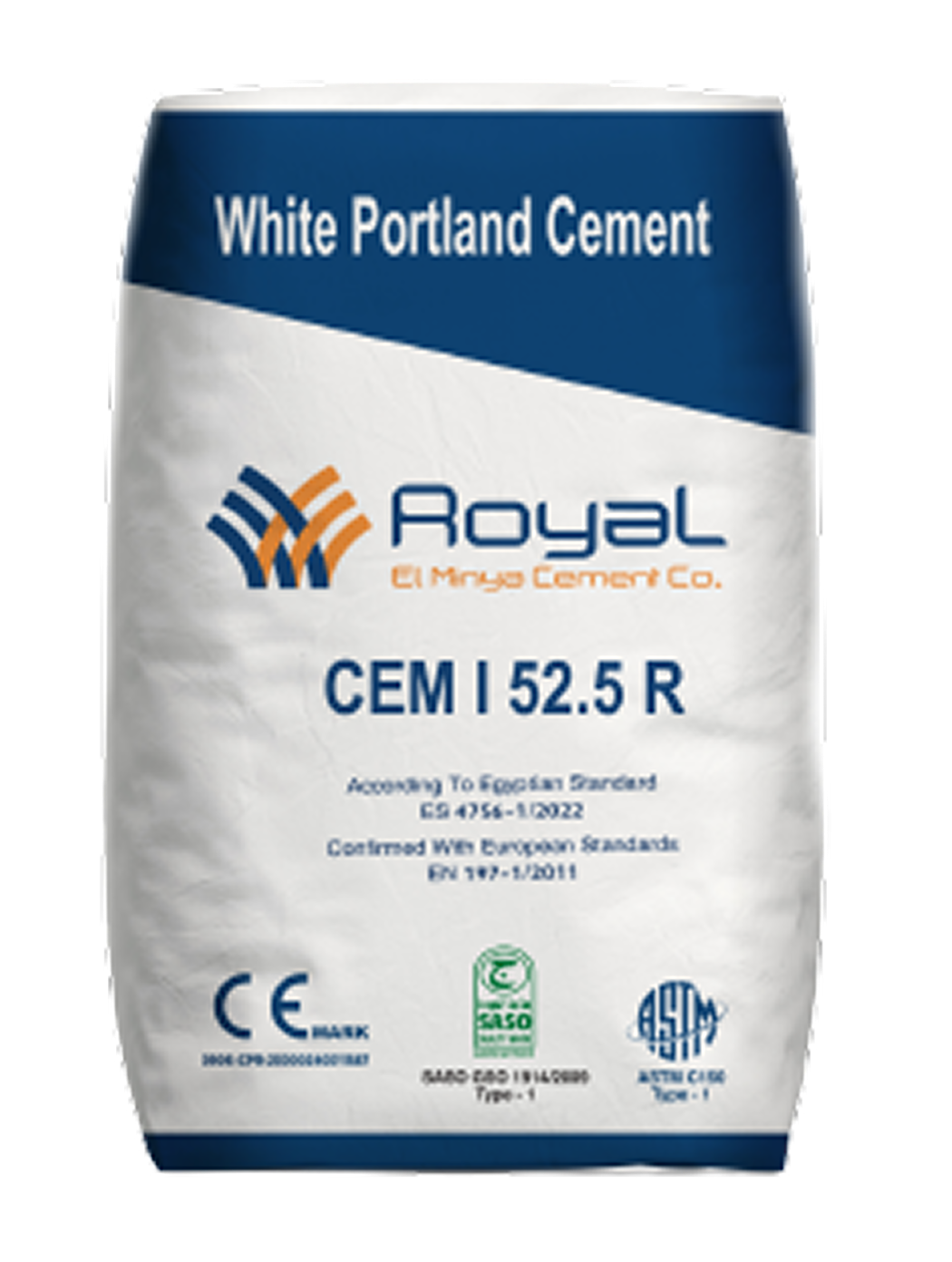
- Architectural & Decorative Concrete–Used in prestige buildings ,façades, and white concrete structures.
- Precast Concrete Products–Perfect for tiles, blocks, panels, and paving stones.
- Colored Concrete & Flooring–Blends seamlessly with pigments for customized designs.
- Plasters & Dry Mixes – Essential for smooth and aesthetically appealing finishes.
- Tile Adhesives & Grouts–Ensures strong bonding and uniform appearance.
- Landscaping &Urban Design–Used for garden elements, fountains, and walkways.
- Industrial & Infrastructure Projects–Applied in bridges, tunnels, and high-end construction.
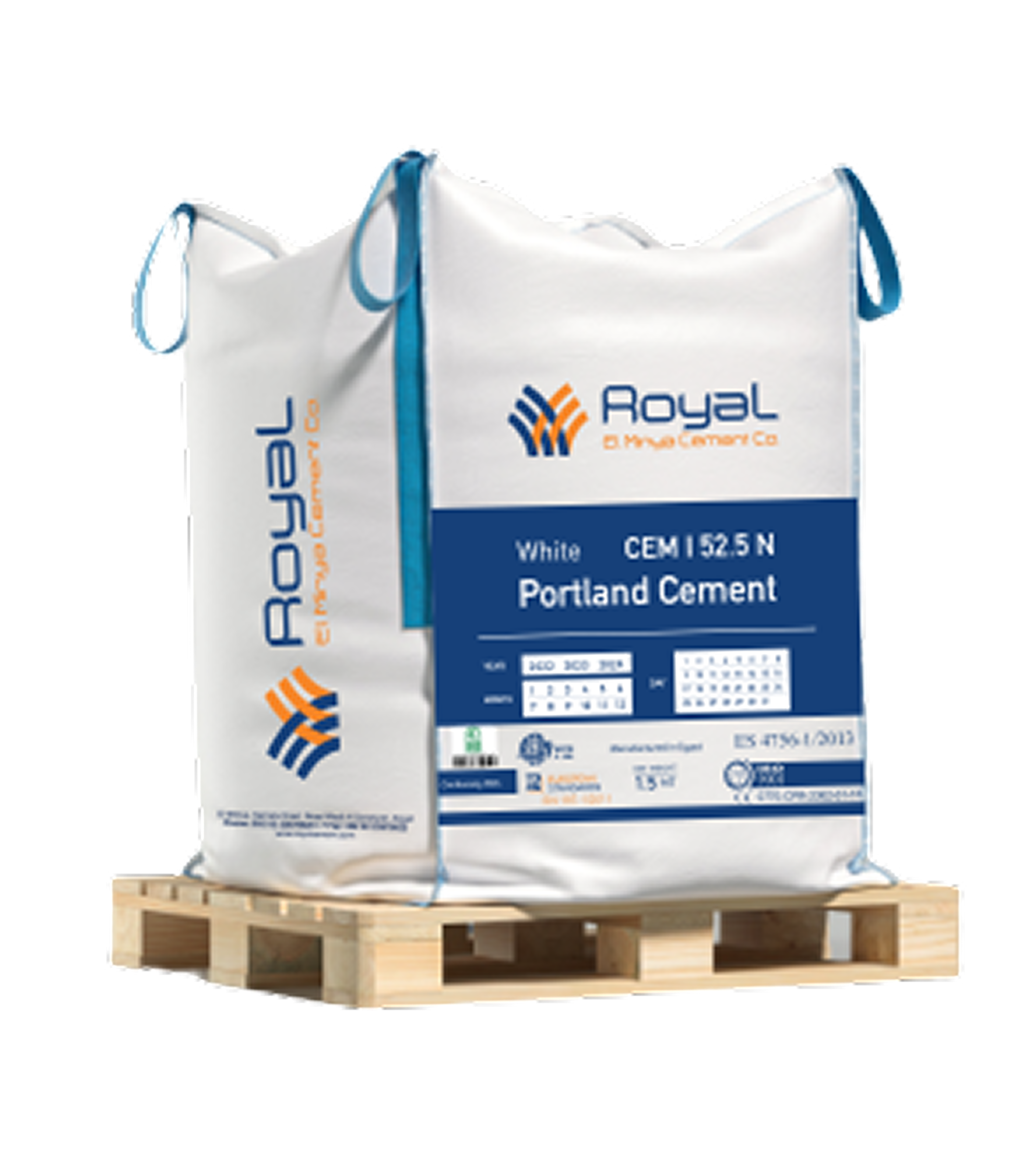
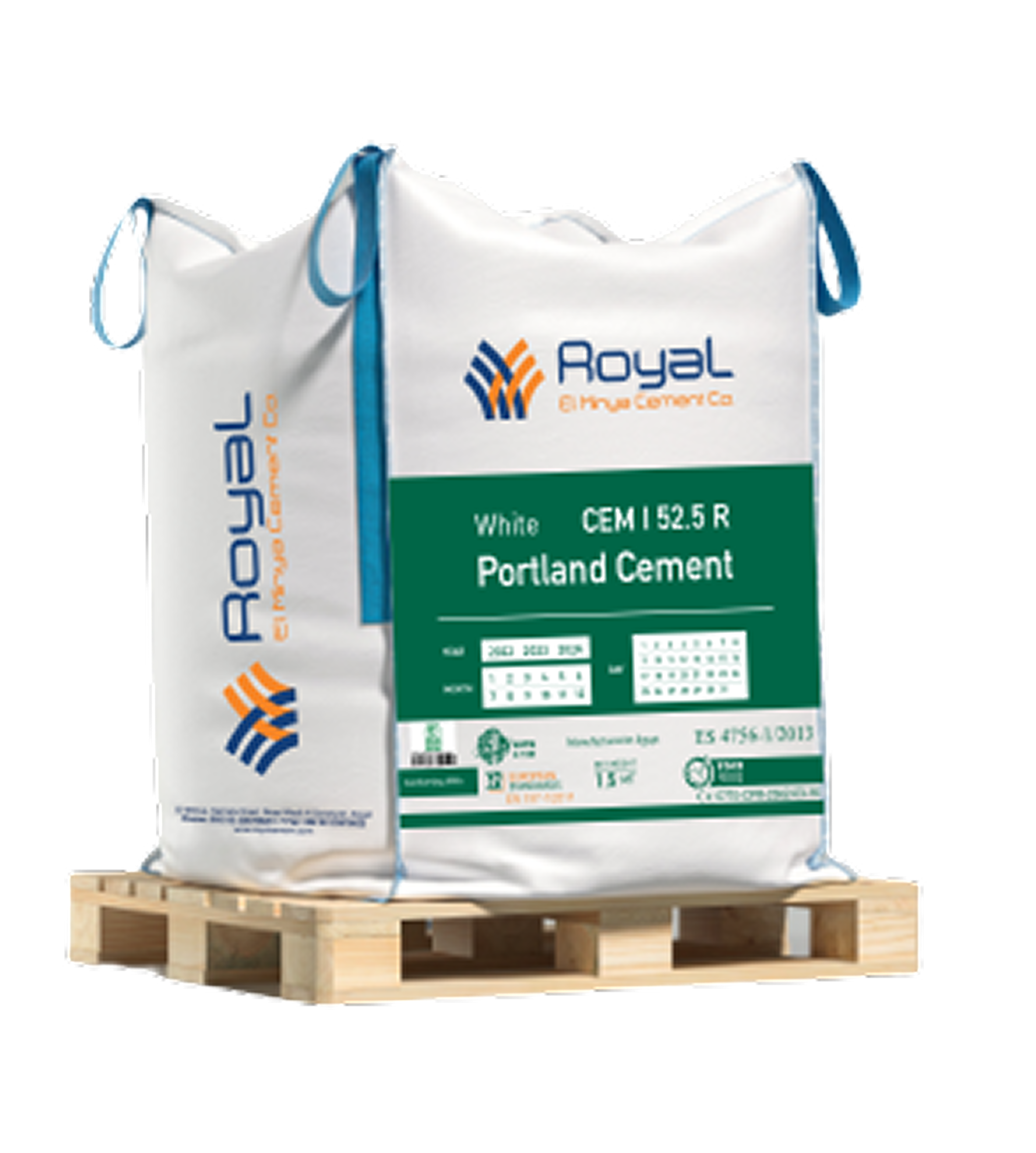
White Portland Cement CEM II 42.5 N
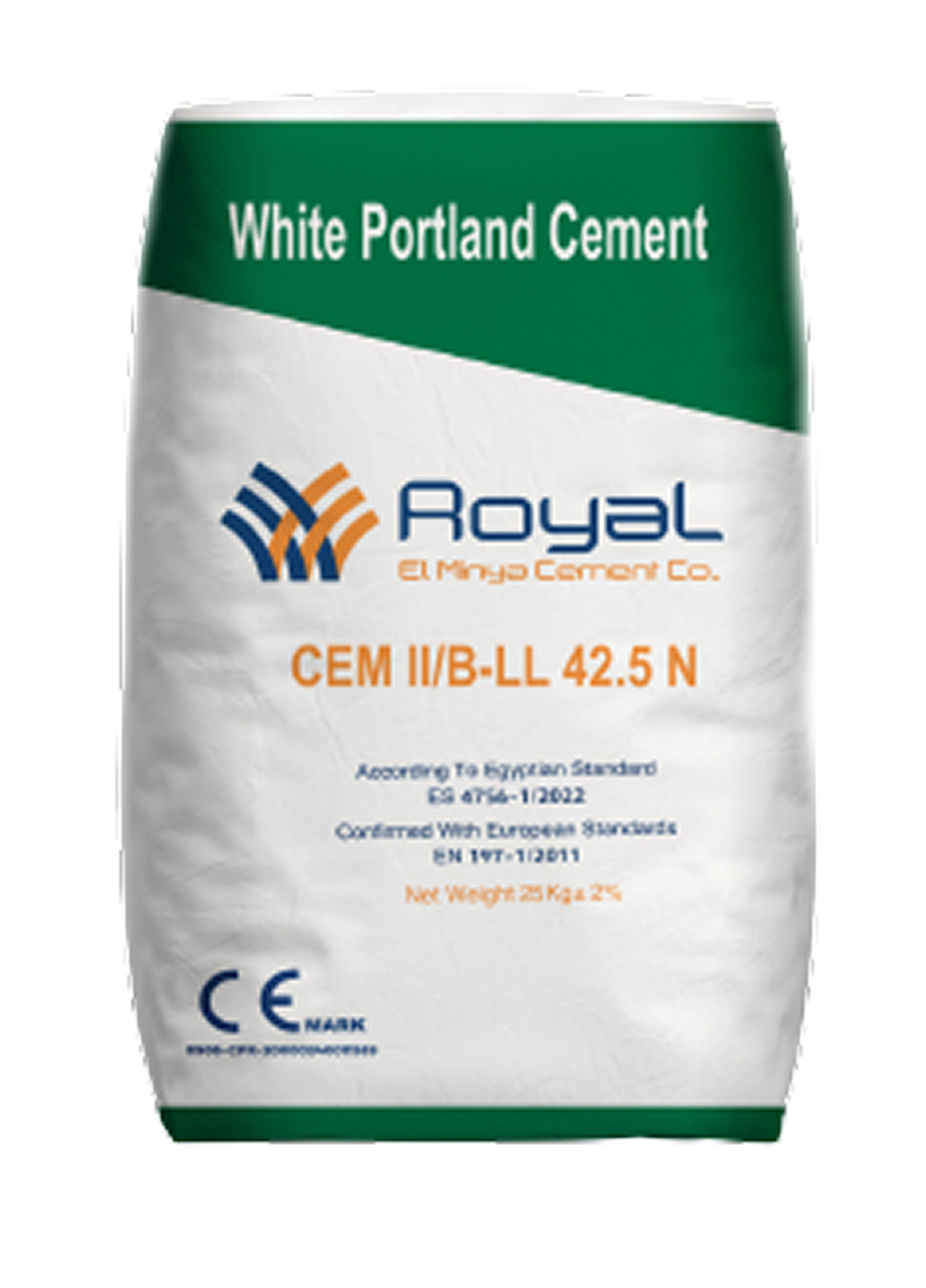
- Masonry mortars & plasters–Ensures smooth application and good adhesion.
- Precast elements–Used in blocks, pipes, tiles, and other prefabricated components.
- General construction–Suitable for residential, commercial, and infrastructure projects.
- Screeds & flooring–Provides strong bonding and durability. Optimized setting time – Balanced hydration for efficiency.
- Structural concrete–Ideal for reinforced and nonreinforced structures.
- Soil stabilization–Enhances foundation and road subgrade strength.
- Sustainable building–Eco-friendly choice
White Portland Cement CEM II 32.5 R
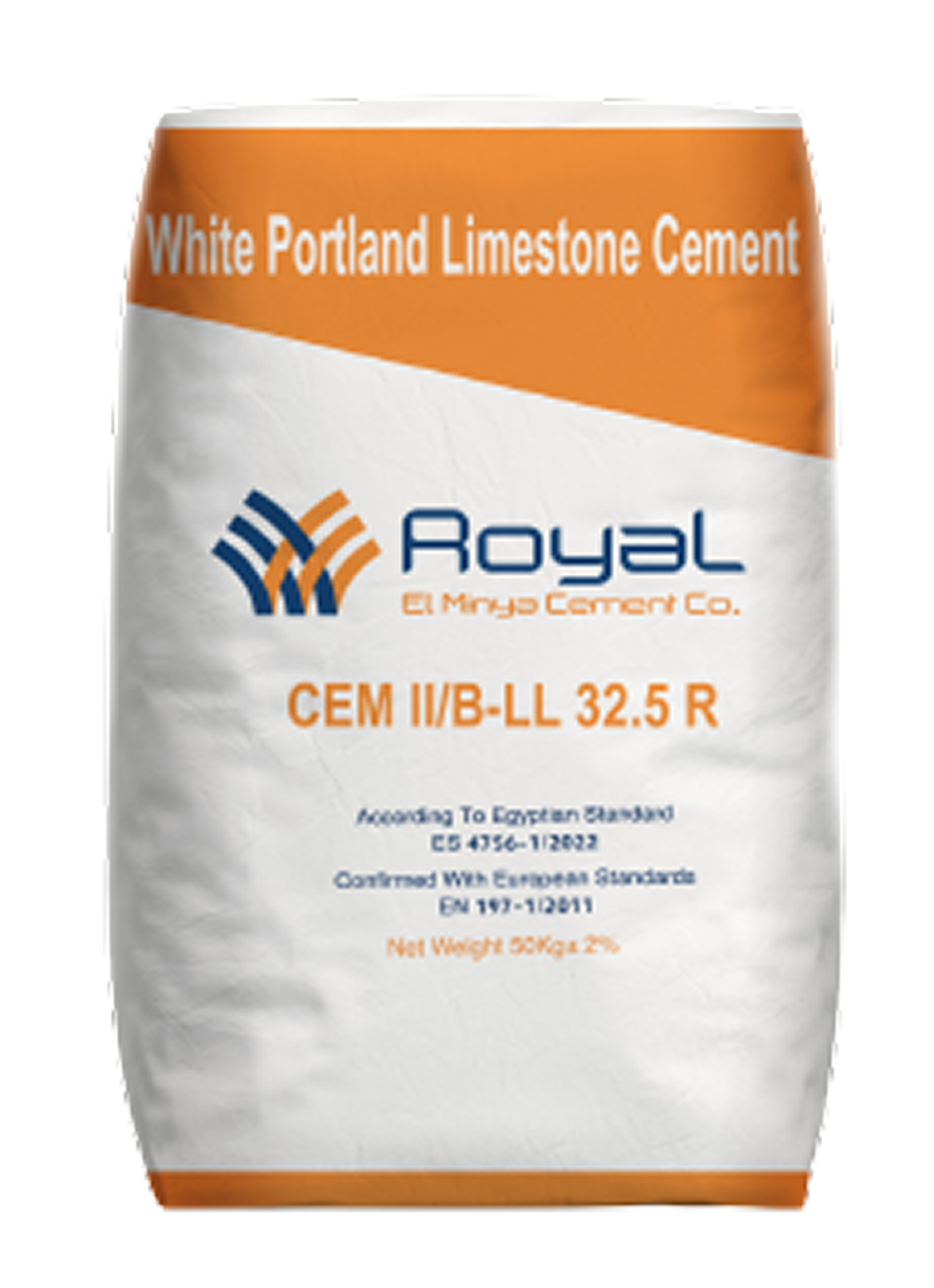
- Masonry mortars & plasters–Ensures strong bonding
and smooth application. - Non-structural concrete–Suitable for foundations,
slabs, and general-purpose concrete works. - Precast elements–Used for producing lightweight
blocks, curbstones, and pipes. - Road base stabilization–Improves soil strength for
subgrades and road construction. - Pavement & walkways–Ideal for light-duty paving and flooring applications.
- Sustainable construction–A preferred choice for
projects requiring lower environmental impact.

